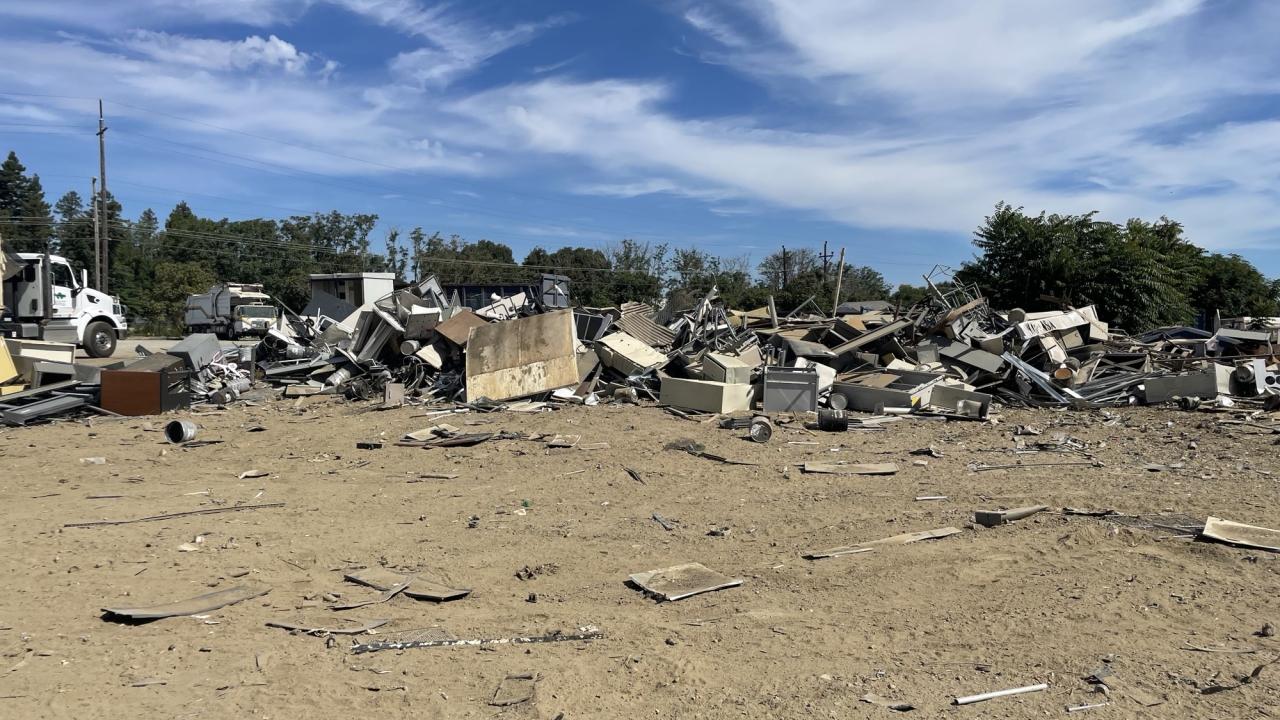
Changes to Solid Waste Drop-Offs
Starting Sept. 1, the Wastewater Treatment Plant will be closed to non-authorized use
Beginning Sept. 1, the UC Davis Wastewater Treatment Plant, or WWTP, will be closed to non-authorized use. Large solid-waste items will no longer be allowed to be dropped off at the site. Campus departments and contractors will need to take these materials to approved off-campus recycling or disposal facilities.
Why now?
We understand that over the years leaving bulky solid waste items at the WWTP became a convenient option for many in our campus community—even though it was never an official service. However, this practice is no longer sustainable and has created several challenges:
- The WWTP must undergo recertification every five years, with the next beginning in 2026. Maintaining an unpermitted dumping site could jeopardize that process. State and campus wastewater officials directed that this practice stop.
- The UC Davis Utilities unit needs to expand the WWTP; the dumping area occupies critical space needed for this work.
- Materials were left unmonitored and, in some cases, remained on-site for extended periods, making them difficult to manage and raising liability and environmental concerns.
What this means for you
Campus departments and contractors must now take large, solid waste items to approved off-campus recycling or disposal facilities.
Need help? The UC Davis Custodial and Waste Management team (formerly Solid Waste) can help identify the most sustainable and compliant disposal options or coordinate hauls for your project.
Redirecting these materials to approved recycling and disposal providers ensures they are handled responsibly and in ways that reduce environmental impact. We recognize that this change removes a convenience the campus community has relied on, but it’s a necessary step to safeguard our operations, protect the environment, and prepare for future needs.
We appreciate your understanding as we make these adjustments and thank you for your partnership in this transition.